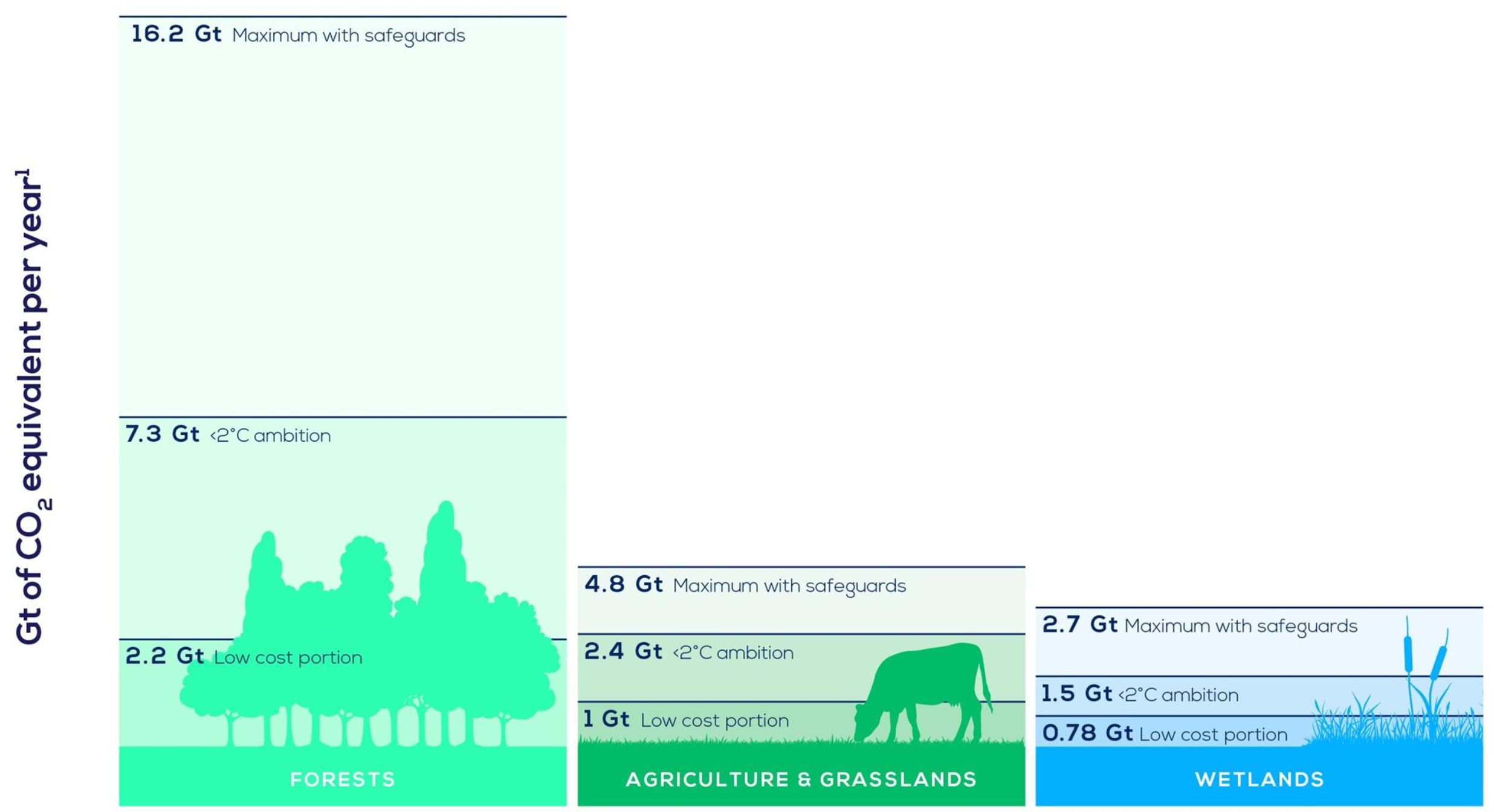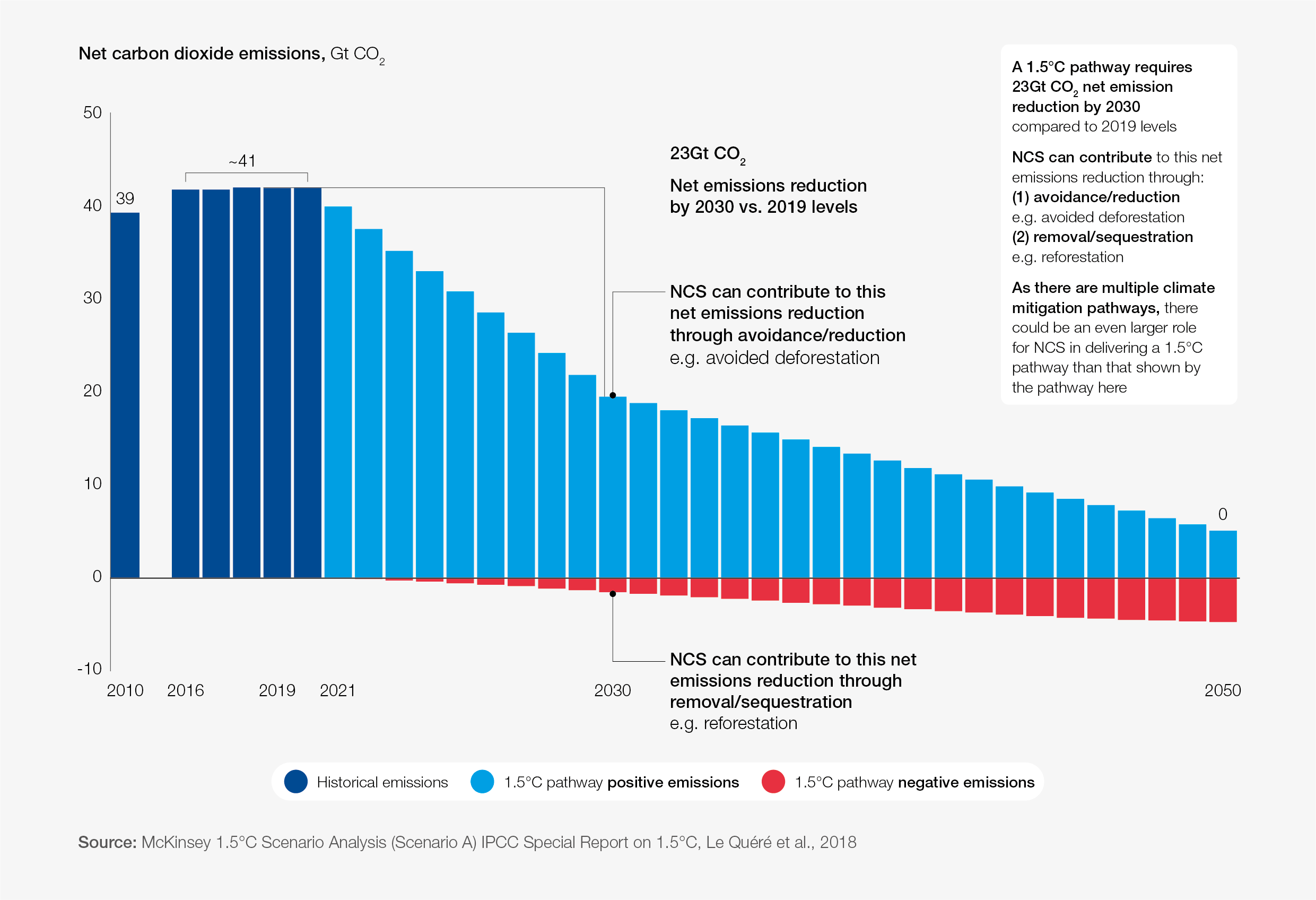5 reasons why tropical forest protection should be central to corporate climate strategies

More than half of the world’s total GDP is dependent on nature and its services. Image: Unsplash.

Get involved with our crowdsourced digital platform to deliver impact at scale
Stay up to date:
Future of the Environment
- The climate crisis cannot be solved without ending tropical deforestation, which increased by 12% between 2019 and 2020.
- A jurisdictional approach to forest protection enables governments to drive systemic change at a national level while supporting local and private efforts.
- Here are five key reasons why this approach should be central to corporate climate strategies.
There is no solution to the climate crisis without ending tropical deforestation. Over the next decade, protecting forests around the world is critical to reaching a 1.5C pathway, while also supporting sustainable development and enhancing biodiversity. Unfortunately, despite recent efforts to reduce demand for deforestation-linked commodities, deforestation increased by 12% between 2019 and 2020. In other words, we are not on track, and time is running out.
Ending tropical deforestation is also a business and an economic imperative. It is not just that consumers, shareholders and governments are demanding corporate action from businesses whose supply chains are associated with deforestation.

Research in 2020 by the World Economic Forum found that $44 trillion of economic value generation – more than half of the world’s total GDP – is moderately or highly dependent on nature and its services and is therefore exposed to nature loss, including tropical forests. Tropical forests also have an important role to play in minimizing the global economy’s costs of transition to climate stability, while providing irreplaceable ecosystem services.
Put simply, there is no way to end deforestation without effective public policy. Governments have the tools and authority to effect comprehensive, large-scale, long-lasting land use change that directly addresses the fundamental drivers of tropical deforestation. This is referred to as a “jurisdictional” approach to forest protection and land use. It represents a comprehensive strategy across an entire jurisdiction (a country or subnational unit), under the guidance of the jurisdiction's government.
Governments have the tools and authority to effect comprehensive, large-scale, long-lasting land use change that directly addresses the fundamental drivers of tropical deforestation.
”In comparison, smaller scale projects, while important and beneficial, can target deforestation hot-spots and allocate capital and technical expertise necessary to quickly address immediate threats to specific areas. Project level activities should and will continue to have an important role moving forward, but they will not reduce deforestation at the scale needed to address both the climate and deforestation emergencies.
What does this mean for companies? First, companies should take all steps possible to commit to deep cuts of greenhouse gas emissions in their own operations in line with science-based targets and consistent with the long-term temperature goals of the Paris Agreement. For some, this includes eliminating deforestation in their supply chains. However, emissions reduction (ER) credits can be a powerful tool to address residual emissions for companies as they chart their net-zero pathways.
With this in mind, there are five reasons that jurisdictional tropical forest protection should be at the centre of corporate climate strategies.
1. Integrity
Jurisdictional-scale programmes offer some of the strongest assurances of environmental and social integrity, especially because they require accounting for the actions of all the actors across a jurisdiction.
First, jurisdictional scale can be reasonably ensured by crediting emission reductions below recent historical levels, or “baselines.” Crediting baselines established in this way includes historical rates of deforestation due to all activities and likely reflects all drivers.
Second, jurisdictional-scale accounting directly accounts for "leakage” within the jurisdiction – making sure that emission reductions in one area do not cause increases elsewhere. This is not to say that the jurisdictional approach is immune, as deforestation can still leak across borders for example, but by expanding the accounting area to the jurisdictional area it does go a long way towards addressing the issue.
Third, strong social and governance principles – such as consultation of all groups of actors in the jurisdiction – are required under a jurisdictional approach, as specified in UNFCCC guidance such as the Cancun Safeguards.
Finally, while both jurisdictional and project-scale approaches risk reversals due to policy changes and illegal activity, a jurisdictional approach provides incentives directly to governments to address the underlying drivers of deforestation by making deep systemic changes (e.g. regulatory, infrastructure, and societal) that also benefit projects. By working across entire jurisdictions, it is possible to leverage all the tools available only to governments.
2. Scale
As demand for ER credits continues to grow, it remains a challenge to ensure that a sufficient high-quality supply is available. The 30% of forest protection carbon credits retired on voluntary carbon markets in 2020 equals about 25 million tons of CO2, while annual emissions from deforestation has reached around 5-6 billion tonnes of CO2.
Not only does the jurisdictional approach offer the potential to supply multiple billions of tons of high-integrity emissions reductions to meet the growing demand in the next 10-15 years, it also provides a path to impact on the ground, at scale, for the benefit of climate, biodiversity and sustainable development.
What is the World Economic Forum doing on natural climate solutions?
3. Nesting
While project-based crediting will continue to play an important role in supporting individual forest protection projects, by supporting jurisdictional action, companies can help accelerate the process of incorporating project-level activity into jurisdictional-scale accounting frameworks – known as “nesting.”
Properly integrated into jurisdictions, privately-funded projects contribute funding and expertise to the greater programme – as well as to the economic development of the host country. In turn, projects benefit from the enabling environment created by the jurisdictional programme’s systemic policy changes. Jurisdictional programmes can also de-risk private investment into forest protection and provide multiple avenues for return on investment. Finally, projects will benefit from the injection of money into the carbon marketplace because the jurisdictional approach can increase supply of high-quality emission reductions that will enable larger buyers to enter.
4. Supply chains
In addition to the generation of carbon credits, the jurisdictional approach complements and supports efforts by large land-sector companies to reduce deforestation in their value chains, and vice versa. On one hand, these companies will benefit from a supportive policy environment, government-led efforts to reduce deforestation and third-party verification of the results of these efforts. If a company’s supply chain is in a jurisdiction that is subject to a jurisdictional programme, then it likely already meets a high bar in terms of transparency and accountability.
On the other hand, these companies can support jurisdictional approaches by increasing stakeholder engagement in jurisdictional efforts by working with producers and suppliers (e.g. growers) and providing technical or financial assistance to increase production, while decreasing deforestation.
5. Impact
Finally, the jurisdictional approach gives companies the opportunity to contribute to the global effort to end deforestation. Companies can play an instrumental and essential role in ramping up results-based financing, alongside increased support from governments, to help end deforestation around the world.
Supporting jurisdictional forest protection also has three additional advantages for driving near-term impact. The first is time – destroying these forests releases carbon into the atmosphere, with immediate effect. Reforesting these areas is an attempt to regrow these carbon sinks over time, which can take up to multiple decades before restoring them to their previous storage potential.
Second is efficiency. As much as 30 times more land is needed for reforestation to generate the same climate mitigation outcome as avoided deforestation in the first place.
Third is co-benefits. Tropical forests are home to around 80% of the world's documented species, they drive numerous earth systems, such as rainfall patterns, provide clean air and water and directly support millions of people, including Indigenous people and local communities.
Companies interested in taking action on tackling deforestation at unprecedented scale and coordination are encouraged to:
- Follow the Green Gigaton Challenge, which sets a global target for transact one gigaton of high-quality emissions reductions from forest-based natural climate solutions by 2025
- Join the LEAF Coalition, a new public-private initiative designed to accelerate climate action by mobilizing $1 billion in funding for jurisdictional emissions reductions.
More information about the benefits of the jurisdictional approach is available in a recently published white paper by Emergent, Forest Trends, UN Environment Programme, and Environmental Defense Fund.
Don't miss any update on this topic
Create a free account and access your personalized content collection with our latest publications and analyses.
License and Republishing
World Economic Forum articles may be republished in accordance with the Creative Commons Attribution-NonCommercial-NoDerivatives 4.0 International Public License, and in accordance with our Terms of Use.
The views expressed in this article are those of the author alone and not the World Economic Forum.
Related topics:
The Agenda Weekly
A weekly update of the most important issues driving the global agenda
You can unsubscribe at any time using the link in our emails. For more details, review our privacy policy.
More on Nature and BiodiversitySee all
Roman Vakulchuk
April 24, 2024
Charlotte Kaiser
April 23, 2024
Jennifer Holmgren
April 23, 2024
Agustin Rosello, Anali Bustos, Fernando Morales de Rueda, Jennifer Hong and Paula Sarigumba
April 23, 2024
Carlos Correa
April 22, 2024
Nick Pickens and Julian Kettle
April 22, 2024








